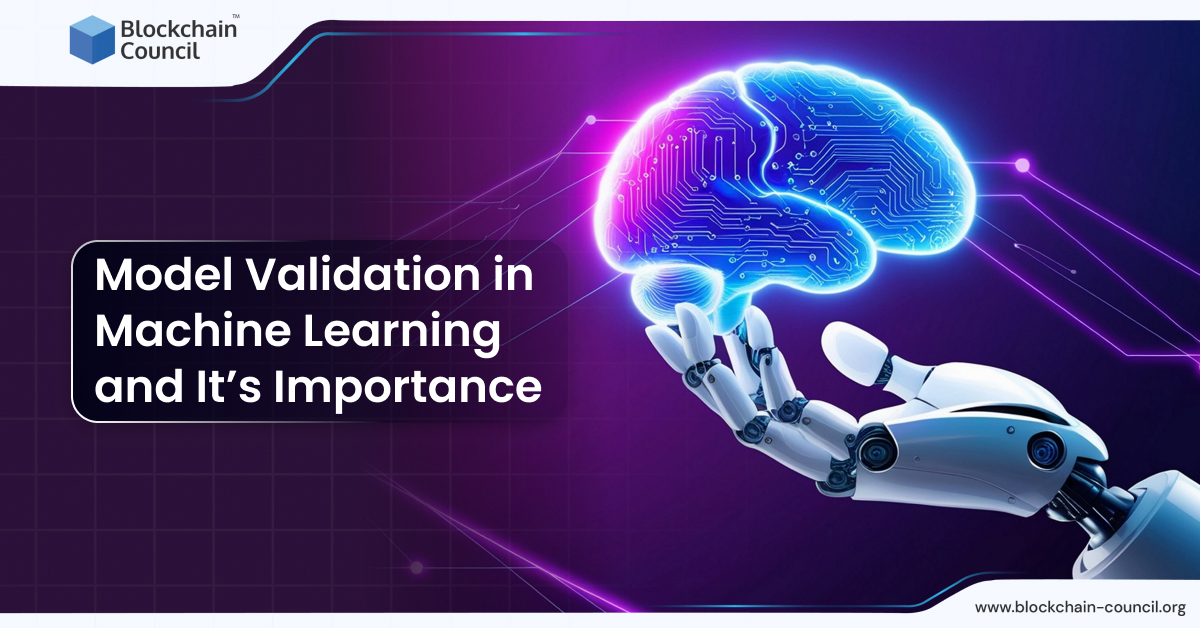
- Blockchain Council
- November 03, 2024
Data privacy and security are major concerns for many businesses, especially as global regulations become stricter. In recent years, artificial intelligence (AI) has become a valuable tool to help companies manage these challenges. AI tools are enabling businesses to better manage their data and meet legal requirements more efficiently.
AI’s Role in Data Classification
One of the main issues that companies deal with today is handling huge amounts of data, most of which is unstructured. Research shows that around 80-90% of the data generated is unstructured, which can make it difficult to manage securely. AI can assist businesses by automatically classifying this data based on how sensitive it is and which regulations, like GDPR or CCPA, apply.
AI-powered tools scan large chunks of data to find personal information and ensure that sensitive data is kept safe. For example, machine learning can review data, identify trends, and categorize information as needed. This automation boosts efficiency and ensures companies meet data protection rules without having to go through everything manually. AI also helps businesses detect sensitive data more easily, which reduces the risk of unauthorized access or breaches.
Working on AI for privacy compliance? Earning the Certified Prompt Engineer™ credential can refine your ability to build models that ensure data security standards.
Real-Time Monitoring and Detecting Threats
AI-driven cybersecurity systems are constantly monitoring networks for unusual activity and possible threats. Traditional approaches often focus on looking at issues after they happen, but AI offers a more proactive solution. Machine learning algorithms identify patterns and flag anything out of the ordinary in real-time, allowing businesses to respond to potential risks quicker. Predictive analytics also helps companies prepare for issues before they get out of hand.
These tools have become even more advanced. AI systems are now more effective at spotting complex attacks, such as phishing attempts or social engineering. These systems update themselves automatically to adapt to new threats, making sure security protocols stay current. This constant monitoring helps companies remain compliant with security regulations, reducing the chances of facing issues.
The Certified Artificial Intelligence (AI) Developer™ certification gives you the tools to build AI systems that meet the stringent demands of data privacy laws.
Automating Compliance Audits and Reporting
Staying compliant with data privacy laws means businesses not only need to protect their data but also prove they have proper measures in place. AI makes this easier by automating the monitoring and reporting of compliance tasks. This is particularly useful in sectors like finance, where frequent reports are necessary to prove that privacy rules are being followed. AI tools can quickly generate audit logs, showing how data is being handled, stored, and processed.
For instance, AI-based platforms can ensure companies comply with rules such as the GDPR’s “right to erasure” or CCPA’s opt-out provisions. These systems produce real-time compliance reports and highlight potential problems that need to be resolved. Automating these tasks saves time and lowers the chances of human error.
The Master Artificial Intelligence (AI) Learning Path offers valuable knowledge for those focused on using AI to streamline privacy and compliance measures.
Making Data Anonymization Easier
Anonymizing data is a key strategy for ensuring privacy, especially when using data for analysis or sharing with third parties. AI plays a vital role in making this process stronger. AI analyzes datasets, finds personally identifiable information (PII), and either masks or removes it to comply with privacy regulations. This means that even if data gets leaked, it cannot be traced back to individuals.
Advanced privacy technologies like federated learning allow AI models to learn from decentralized data without needing access to the actual raw data. This lets businesses gain insights from data without violating privacy rules. With tougher laws on cross-border data sharing, privacy-enhancing AI helps businesses stay compliant while still benefiting from data analysis.
Keeping Up with Changing Regulations
The rules around data privacy are changing fast. Countries such as the U.S., Brazil, and those in the EU are constantly updating their laws, and businesses need to stay on top of these changes. AI helps by automatically updating compliance processes when new regulations are introduced. These systems can spot changes in real-time, ensuring companies adjust their practices accordingly.
For businesses operating in different regions, local privacy laws can vary, which makes things more complicated. AI-driven compliance tools help businesses map their data practices to regional rules, find any gaps in their compliance, and offer suggestions for improvements. This can help companies avoid fines or legal action. For example, in 2023, major companies like Meta faced over $1 billion in fines for not meeting data privacy requirements.
As privacy regulations tighten, being a Certified Artificial Intelligence (AI) Expert™ can boost your expertise in AI’s role in maintaining compliance and protecting sensitive data.
Wrapping It Up
AI is transforming the way companies approach data privacy and security regulations. From automating how data is classified to detecting threats in real-time, AI offers critical support. It also helps with automating compliance reporting and anonymizing sensitive information. In a time when data breaches can cause serious financial and reputational harm, AI is becoming a necessary tool for businesses. As privacy laws keep changing, AI will increasingly assist businesses in staying compliant while safeguarding their users’ data.
For ongoing education in data security and compliance, our Unlimited Learning Subscription (AI) covers the latest AI applications for meeting industry standards.


































































 Guides
Guides News
News Blockchain
Blockchain Cryptocurrency
& Digital Assets
Cryptocurrency
& Digital Assets Web3
Web3 Metaverse & NFTs
Metaverse & NFTs
